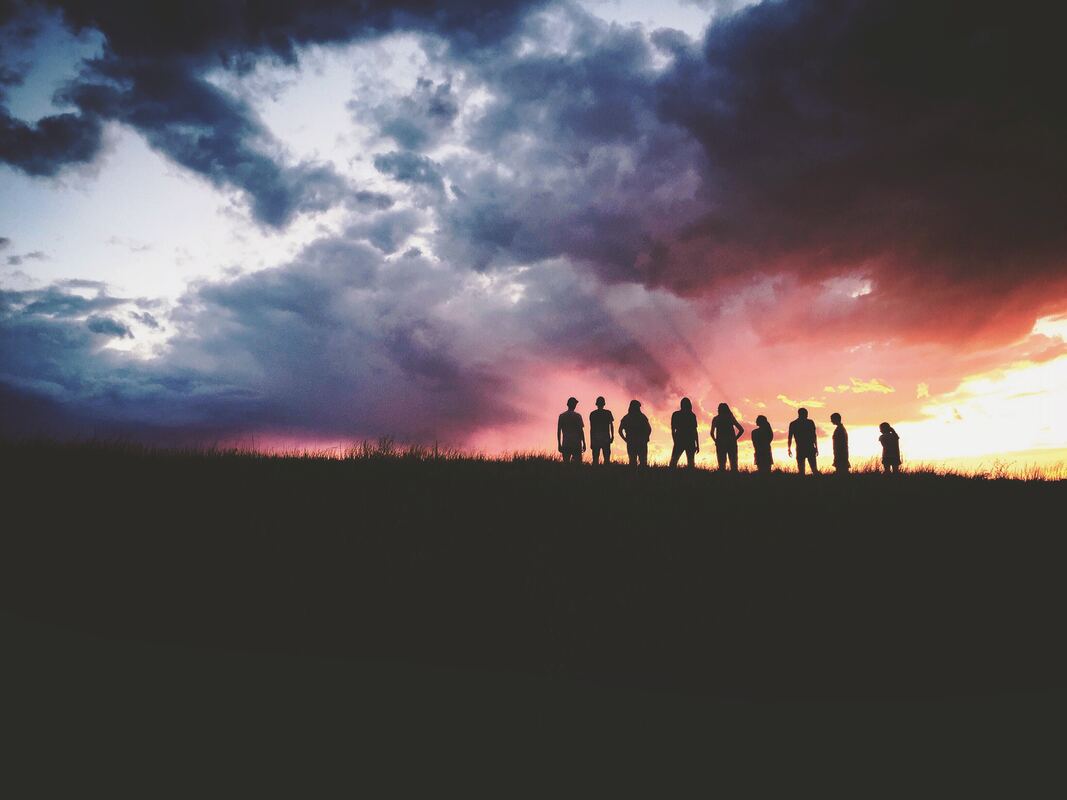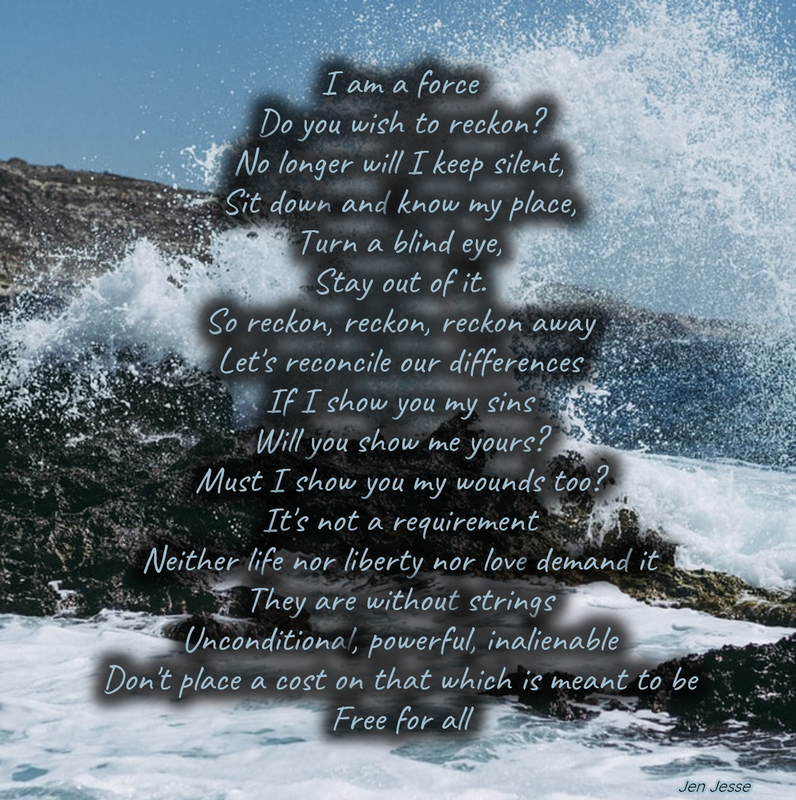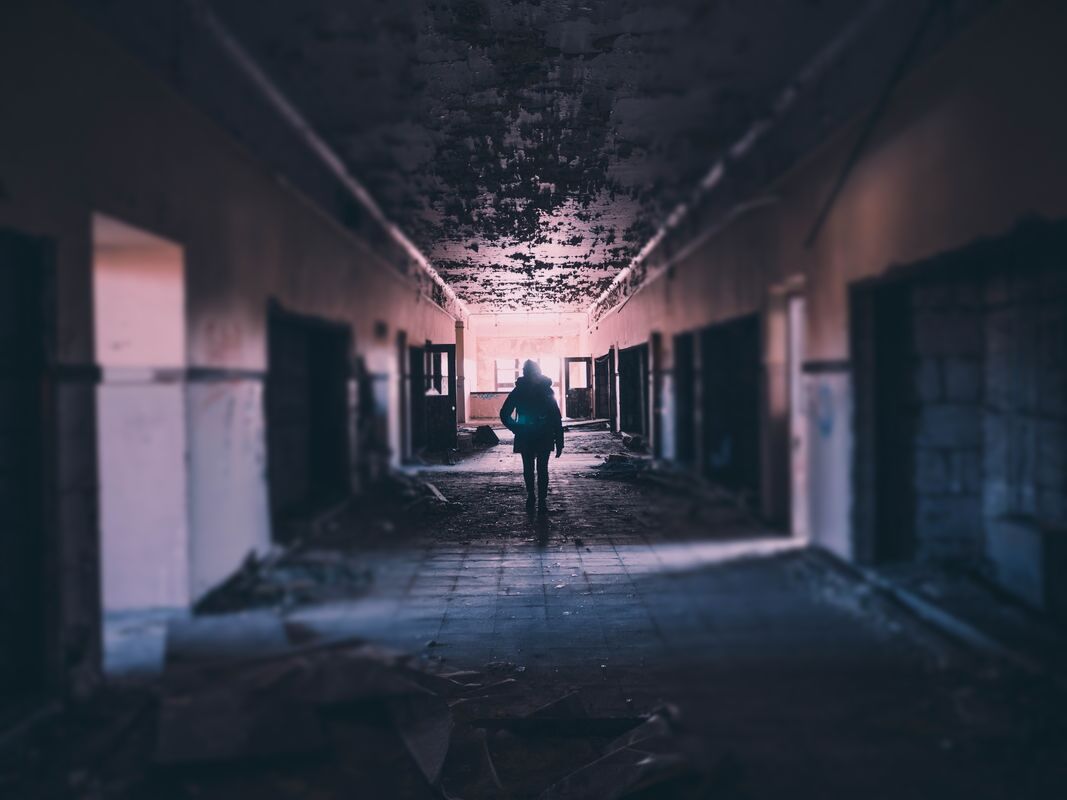PostsHere is it, y'all: love changes things 8/7/20
Good Friday in the Midst of a Pandemic 4/10/20 Wrestling with Faithfulness and Transformation (a sermon) 10/21/19 Healing of the Outcasts (a sermon) 10/18/19 Reckon-ciliation (a poem) 7/19/19 The Road to Recovery 6/26/19 Perpetuating Sins of the Church 8/16/18 It's Tuesday and I'm Overwhelmed 5/8/18 Music is a Language 5/3/18 Skipping a Meeting 4/10/18 Spark (a poem) 4/5/18 Recovery 4/4/18 A New Old Song for Holy Saturday 3/31/18 Good Friday? 3/30/18 Who are the Leaders in Your Church? 1/2/18 |
Back to Blog
Hot take: If a literal Satan exists and is a fallen angel, maybe the point of all this is to let him see how even mere humans can choose love over evil, and thus bring him to his own decision of transformation into good.
From this concept, we can derive the following: That is why even an all-knowing, all-loving, all-powerful God wouldn't regularly intervene with "bad" people - because we are basically supposed to love them into being good! Not by force or trickery or coercion, but through transformation of the heart and soul, which comes by learning - and experiencing firsthand - unequivocal compassion and love. Love is transformative. Ever have that feeling of being a new person, significantly different from who you used to be, and you can't fully remember firsthand how you used to be? That is new life, which comes after a life-changing experience. And this can happen multiple times in your life, as you receive altruistic care or are demonstrated this power of love. What would we learn if God just intervened all the time? We'd learn that there's a magical sky genie who will swoop in to fix everything no matter what we do. And we would never change or grow, or try to understand other people better, or try to make connections with people who are different than we are. We would be existing, but we would not be Living. The rules of power don't have room for love, compassion, or any other things that oppressive, self-centered power considers "weakness." But love changes the game! God - Love - makes room. Our belief in - and our faithfulness to - our past-all-understanding connection with each other makes room. Room for their own existence, room for love - these things are the same. This is the good news Jesus was teaching. That by radically loving our neighbor and our enemy, we can change hearts. We can change relationships. We can gain perspectives. We can even change the overarching systems that have been built to harm and oppress on a wide scale, and thus bring the kingdom of heaven - that Divine vision of justice and love for all - to earth here and now.
Back to Blog
Good Friday in the Midst of a Pandemic4/10/2020 It feels weird to celebrate Good Friday during a pandemic. As we see infection rates and death tolls rising – in our local communities, our countries, and the world – how can we call a day of death as “good”?
Back to Blog
This is a recording of a sermon I gave on October 20, 2019 at Bountiful Community Church in Bountiful, UT.
For context, the day's scripture readings were the story of Jacob wrestling with the man and the parable of the widow and the unjust judge: Genesis 32:24-31 (NRSV) Jacob was left alone; and a man wrestled with him until daybreak. When the man saw that he did not prevail against Jacob, he struck him on the hip socket; and Jacob’s hip was put out of joint as he wrestled with him. Then he said, “Let me go, for the day is breaking.” But Jacob said, “I will not let you go, unless you bless me.” So he said to him, “What is your name?” And he said, “Jacob.” Then the man said, “You shall no longer be called Jacob, but Israel, for you have striven with God and with humans, and have prevailed.” Then Jacob asked him, “Please tell me your name.” But he said, “Why is it that you ask my name?” And there he blessed him. So Jacob called the place Peniel, saying, “For I have seen God face to face, and yet my life is preserved.” The sun rose upon him as he passed Penuel, limping because of his hip. Luke 18:1-8 (David Bentley Hart translation) And he told them a parable on the necessity of their always praying and not becoming remiss, Saying, “In a certain city there was a certain judge who did not fear God and who had no concern for humankind. And there was a widow in that city, and she came to him saying, ‘Grant me justice over against my adversary.’ And for some time he would not; but thereafter he said within himself, ‘Though indeed I do not fear God, nor do I have any concern for humankind, I shall grant her justice simply because she bothers me, for fear that at the last she will entirely exhaust me with her visits.’” And the Lord said, “Listen to what the unjust judge says; Will not God then surely bring about justice for his chosen ones crying to him day and night, and not delay over them for long? I tell you, he will swiftly bring them justice. Yet, when the Son of Man comes, will he then find faith on the earth?”
Click "Read More" to follow along with my sermon notes/outline
Back to Blog
Healing of the Outcasts10/18/2019
This is a recording of a sermon I gave on October 13, 2019 at Bountiful Community Church in Bountiful, UT.
For context, that day's scripture reading was the story of Jesus healing the ten lepers: Luke 17:11-19 (NRSV): On the way to Jerusalem Jesus was going through the region between Samaria and Galilee. As he entered a village, ten lepers approached him. Keeping their distance, they called out, saying, “Jesus, Master, have mercy on us!” When he saw them, he said to them, “Go and show yourselves to the priests.” And as they went, they were made clean. Then one of them, when he saw that he was healed, turned back, praising God with a loud voice. He prostrated himself at Jesus’ feet and thanked him. And he was a Samaritan. Then Jesus asked, “Were not ten made clean? But the other nine, where are they? Was none of them found to return and give praise to God except this foreigner?” Then he said to him, “Get up and go on your way; your faith has made you well.”
Click "Read More" to follow along with my sermon notes/outline.
Back to Blog
Reckon-ciliation (a poem)7/19/2019 I am a force Do you wish to reckon? No longer will I keep silent, Sit down and know my place, Turn a blind eye, Stay out of it. So reckon, reckon, reckon away Let's reconcile our differences If I show you my sins Will you show me yours? Must I show you my wounds too? It's not a requirement Neither life nor liberty nor love demands it They are without strings, unconditional, powerful, inalienable Don't place a cost on that which is meant to be Free for all
Back to Blog
The Road to Recovery6/26/2019 An abbreviated version of this article was originally shared on May 6, 2019, on the blog "We Talk. We Listen."
I’ve never really fit in anywhere - I’m just one of those people, I suppose. Oh, sure, I can camouflage with the best of chameleons, pick up the lingo, blend in...but ultimately I hear the message (vocalized or not) that I don’t belong. Perhaps you’ve felt like this before, or you can at least sympathize and recognize that people feel this way all the time. But surely there is a place for everyone in the church, right? “All are welcome,” right?
Back to Blog
Perpetuating Sins of the Church8/16/2018 A friend of mine posed this question on social media this morning: “If all the rapists from the Catholic diocese of Pennsylvania and all those that have covered for the rapists are fired, how many people would remain in the diocese?” If you’re unfamiliar with the story (or the latest specific instance of this all-too-familiar story), she’s referring to the 300+ Roman Catholic priests from 6 Pennsylvania dioceses who have been named in a grand jury report who abused over identified 1,000 children over a period of 70 years, with countless other church officials covering up the abuse.
Anyway. My friend’s question raised one in me: If all those who perpetuate or cover up or turn a blind eye to any abuse in the church were fired/excommunicated/whatever, how many would remain? Setting aside the question, for today, the questions of when should someone be fired from the church and whether someone should be excommunicated from the church, really, how many would remain if those involved in abuse systems were no longer part of the church?
Back to Blog
It's Tuesday and I'm Overwhelmed5/8/2018  I am feeling overwhelmed. I googled “feeling overwhelmed” and opened the first half dozen links – surely that is a good tactic, ha. One of the results had the headline “Feeling Overwhelmed is a Common Anxiety Symptom.” You think?? Anyway. I already tried breathing. I tried tidying up a tiny bit. I prepared a page where I can brain dump distracting ideas to revisit later (such as what countries have decent weather, have decent equality and civil rights, and aren’t likely to get involved in a ridiculous nuclear war that will destroy us all, thankyouverymuch Mr. President). It’s a little funny that “Madame President” is thought to be the proper title for a female POTUS, even though madame in the U.S. pretty distinctly refers to a female pimp. I wonder what that means, but I don't have time to think it through today. Anyway, back to the point.
Back to Blog
Music is a Language5/3/2018 Have you read Shakespeare - and did you 'get' it and like it? It seems that generally, people either love or hate Shakespeare. I know Shakespeare's plays have actually been described as "laugh-out-loud funny." One amusing example is this excerpt from Hamlet, which occurs after Hamlet has killed the king's advisor Polonius: King: Now, Hamlet, where's Polonius? Hamlet: At supper. King: At supper where? Hamlet: Not where he eats, but where he is eaten. A certain convocation of politic worms are e'en at him. Get it? Polonius is "at supper" in that he is the food being served to worms, in a way. Because he's dead, see. Later, the king asks again: King: Where is Polonius? Hamlet: In heaven. Send thither to see. If your messenger find him not there, seek him i' th' other place yourself. But if, indeed, you find him not within this month, you shall nose him as you go up the stairs into the lobby. So here, Hamlet says Polonius is "in heaven" because he's dead. Or maybe he's in hell, he suggests, but if you don't find him soon, you'll smell his rotting corpse. Hilarious! I mean, not to me, but to some people. |
 RSS Feed
RSS Feed









